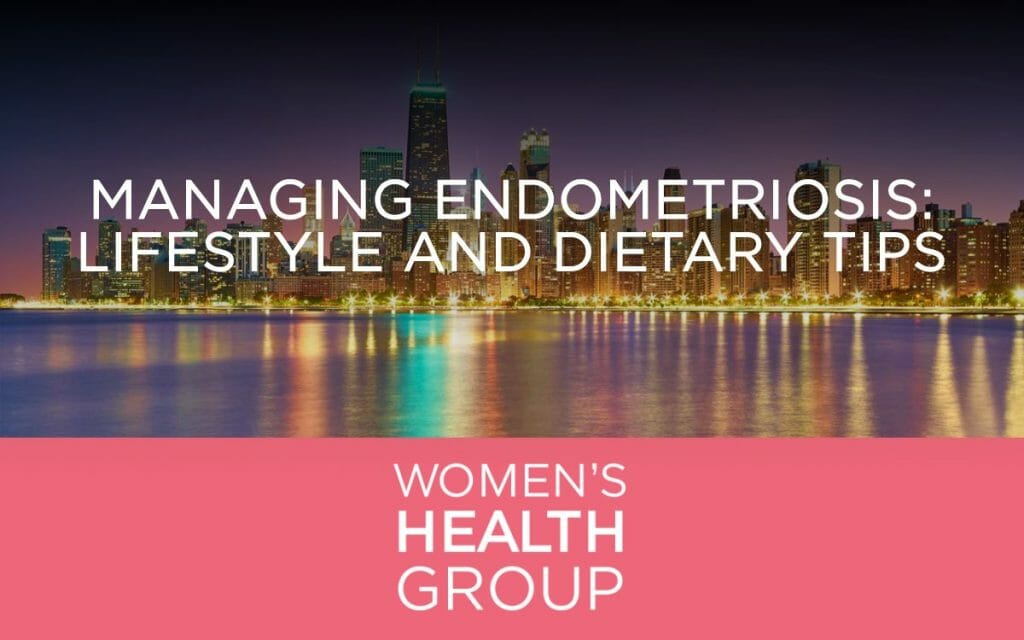Understanding Endometriosis and Its Importance
Endometriosis is a chronic disease affecting an estimated one in ten women during their reproductive years, according to research from Women’s Health gov. In essence, it’s a condition where the tissue that should line the uterus – the endometrium – grows elsewhere, such as the pelvic lining, ovaries, and fallopian tubes. As an obstetrician-gynecologist practice based in Chicago, Illinois, we frequently encounter cases of endometriosis in our Women’s Health Group. It’s important to know that despite being a distressing and often painful condition, endometriosis is manageable with the right interventions. This article provides a comprehensive take on endometriosis management, focusing on lifestyle and dietary changes that can work in tandem with medical treatments.
Nature of Endometriosis
Firstly, it’s crucial to understand the nature of endometriosis. The displaced endometrial tissue continues to function as it should, thickening, breaking down and bleeding with each menstrual cycle. Since it has no way to exit the body, cysts or endometriomas may form, and surrounding tissues can become irritated, leading to scar tissue and adhesions. This cascade of events triggers pain – sometimes severe – especially during menstruation. Our focus at Women’s Health Group is to elevate awareness, encouraging women to seek help early on and facilitating comprehensive endometriosis management.
Endometriosis and Diet: The Connection
Mounting evidence from nutritional studies signifies the potential of dietary interventions in managing endometriosis. Certain foods contain elements linked to higher estrogen levels, inflammation, and pain – all central components of endometriosis. By altering the diet, it’s plausible to moderate these elements and provide some relief.
Recommendations for Wholesome Foods
Here are some dietary recommendations that could assist in managing endometriosis:
Increase intake of omega-3 fats found in fatty fish, nut, and seeds. Fish like salmon, mackerel, and tuna are high in these beneficial fats that combat inflammation.
Incorporate plenty of fruits and vegetables, which contain antioxidants that counteract inflammation.
Consume more whole grains such as brown rice, quinoa, and oats. These foods are rich in fiber, which can help gently remove excess estrogen from the body.
Opt for lean proteins like poultry, tofu, lentils, or beans rather than red meats, which are linked to higher levels of inflammation.
Lifestyle Changes for Endometriosis Management
Beyond diet, certain lifestyle changes can be beneficial for those managing endometriosis. A few suggestions include:
Regular physical activity which can help reduce estrogen levels and alleviate pain.
Getting enough sleep is crucial for overall well-being but it also plays a role in managing symptoms.
Mind-body practices such as yoga and meditation may assist in pain management and emotional wellbeing.
Avoiding substances like alcohol, caffeine, and nicotine – all of which have been linked with increased endometriosis symptoms.
The Role of Medical Treatment in Endometriosis Management
While lifestyle and dietary changes can significantly aid endometriosis management, they are often most effective when combined with medical treatment. Clinical interventions primarily aim to mitigate pain and preserve fertility. Depending on the individual’s symptoms, goals, and general health, a variety of treatments may be considered by a healthcare professional. Further understanding of these treatments can be found at accredited medical websites like the Mayo Clinic.
Endometriosis: A Comprehensive Approach is Key
As seen, managing endometriosis requires not merely one solution but a comprehensive multifaceted approach incorporating lifestyle modifications, dietary changes, and medical treatment as necessary. At the Women’s Health Group, we believe knowledge is power. The more informed you are about your condition and the available management strategies, the better equipped you’ll be to navigate this journey. Feel comfortable consulting your healthcare provider, discussing your symptoms, and thinking about which changes might best suit your lifestyle, preferences, and health objectives. Through a comprehensive approach, endometriosis can be successfully managed, leading to enhanced quality of life.




